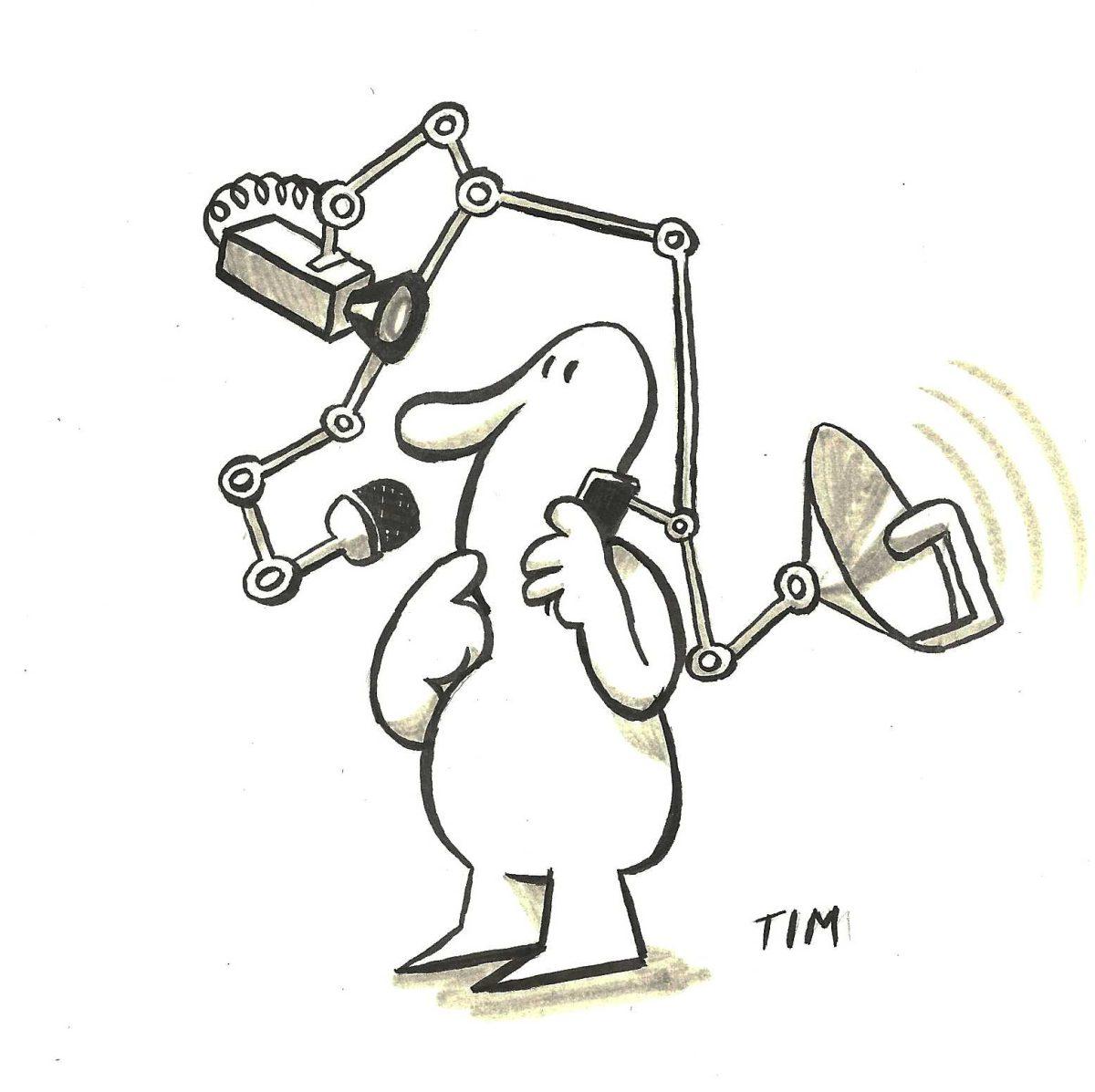Your privacy isn’t important enough for the Supreme Court.
Last week, the court declined — without comment — to hear a case six years in the making between civil liberties groups and telecommunications companies over the National Security Agency’s (NSA) wiretapping programs.
Why? Because a law passed in 2008, the Foreign Intelligence Surveillance Amendments Act (FAA), made the agency’s illegal activities legal and gave these companies immunity from lawsuits.
It’s the land of the free, as long as you’re a “job creator.”
Otherwise, watch your language in that text message, terrorist.
The case Hepting v. AT&T was a class-action lawsuit filed by the American Civil Liberties Union (ACLU) and the Electronic Frontier Foundation (EFF) in 2006 against AT&T. They alleged that AT&T assisted and permitted the NSA to monitor its clients’ activity and mine data from its records without warrants.
The case was doing pretty well in the beginning.
After the NSA wiretapping program was exposed by The New York Times in 2005, more information began seeping to the public.
Mark Klein, a former AT&T technician-turned-whistleblower, became the preeminent plaintiff for the case. Klein produced internal company documents that suggested the NSA was monitoring Internet traffic from a secret room in an AT&T facility in San Francisco.
Klein even suggested that the NSA’s program was not limited to foreign communications — a claim that is being echoed by former NSA analyst William Binney and gaining prominence.
But then FAA passed.
All of a sudden, the case had to switch from seeking billions of dollars in damages from AT&T for violating its users’ privacy to arguing whether the FAA’s immunity provisions were constitutional.
The case was dismissed by the Ninth Circuit Court of Appeals, citing the FAA’s retroactive provisions.
The Supreme Court has now upheld its ruling, protecting these companies from their own customers.
Telecommunications companies are involved in some of the most repugnant aspects of the surveillance system that has grown since 9/11.
Justice Department documents released to the ACLU have shown that surveillance activities that obtain (without warrants, of course) information about who is sending and receiving communications have risen to 37,616 in 2011 from 5,683 in 2001.
Even worse, these companies have turned your data into a revenue stream, charging law enforcement for each request.
This case could have been the first step in turning back this tide, but the Supreme Court upheld the act.
Here is a fundamental example of the disparity of power that exists between large, moneyed corporations and us peons when it comes to our influence in the government.
Our government’s system of checks and balances is one the most praised aspects of our republic.
Yet, here we have a fundamental breakdown of its protections.
The FAA involved the legislative branch bailing out the executive branch for its misdeeds. Currently, with the judicial system being the only course left that can protect citizens from this abuse of government and corporate power, the highest court backs down without even commenting.
Admittedly, the Supreme Court will be hearing the ACLU challenge the government and the FAA in a separate case, Amnesty et al. v. Clapper, on Oct. 29.
But there are fundamental differences between the two cases.
For one, a federal appeals court ruled in favor of the ACLU, so the Supreme Court has to hear the case to protect the FAA.
Secondly, the defendant in this case is the government and not the telecommunications companies.
The FAA has already been reauthorized by the House this year and will be coming to the Senate before the year’s end.
Unless, by some miracle, the Senate does not reauthorize the law, or the Supreme Court actually rules in favor of the ACLU in the second case, then the FAA will continue to be a part of American life.
And our private communications will continue to be fair game.





